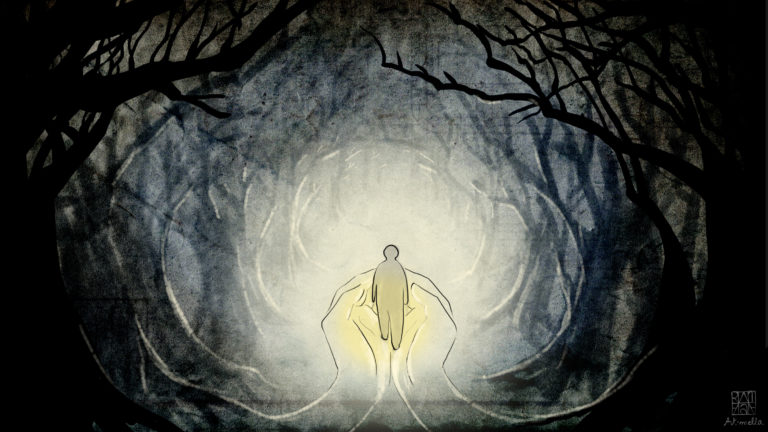The Death Doula Certificate Training Weekend As a Facilitator vs. a Participant
- Lisa Bonneville

- Oct 8, 2022
- 4 min read
Updated: Apr 16, 2023
In honour of World Hospice and Palliative Care Day today, I’d like to reflect on the differences between my experiences as a death doula trainee and as a death doula training facilitator.
I always thought that anyone who teaches a class knows exactly what they’re doing and are the experts in whatever they are teaching. They make it look so easy-peasy, right? I don’t feel like I did. This past April, I facilitated Home Hospice Association’s Death Doula Certificate Training weekend for the first time, but it was not my first time as a facilitator in general. In fact, I have been facilitating for 5 years now, and it’s been a mix of experiences with some in person, some online, and I find that each experience is an entity of its own. The material is not new to me, but the participants are, and each session has a different vibe to it because everyone brings their own enthusiasm, experiences, personalities, thoughts, and ideas, especially when it comes to the subject of dying and death.

I feel as though even as a facilitator, when you watch other facilitators present, there’s always something new to learn because each person brings their own flavour to their teaching. The field of dying and death is by no means linear. It is composed of the uniqueness of every fingerprint that touches it. I can almost guarantee you that you can attend (and facilitate!) every single training and still learn something new. As you hear the stories that are shared and the curious questions that are asked, it makes you think and re-think repeatedly. It’s a beautiful thing.
As a facilitator, I try to create an experience that makes the participants think outside the box and tap into their own discomfort. When I began my own training, many years ago now, my facilitator had a way of getting in your head--so much so that when your session was over, you would walk away with your head spinning and emotionally exhausted. I know that doesn’t sound like a good thing but trust me…it was. He had a way to make you tap into your own losses, consider how you would feel about your own death, and make you truly imagine what it would feel like to lose what meant the most to you as your imaginary illness progressed. He wanted you to come to the work with an understanding of how your clients feel. It changes you, how you look at the world, and how you interact with those you love. Honestly, I had to go through a detox of sorts when those classes were done because I wanted to learn more from him. I had the privilege of learning from him years later how to facilitate the way he does, with my own flair thrown in, of course.
Everyone has their own reasons for wanting to become a death doula and those reasons fuel most of the participants who choose to do this valuable work for a living. I believe it is important to engage the participants to feel their own mortality, look at their own losses, and engage them so they have a clearer understanding of their client’s individuality, how much that can change during the course of an illness, and how many variables are in a person’s life that wreak havoc on decision making.

When I was in the participant seat, all the information coming at me was analyzed through my personal lens. How do I feel about this? Does this fit into what I want for my doula practice? What do I want for my doula practice?? Do I see myself doing the things they’re suggesting? One of the best things about being a death doula is that you bring your authentic self to the role.
Have you ever heard the theory that animals can sense when someone is less than kind? Well, I think that the dying gain that same sense, and they know when you are not being genuine. I kept thinking about how to make this practice my own and what can I bring to each table to help guide, support, and educate whomever I have the privilege of serving. My background knowledge is through years of working in hospice, end-of-life service, and attending any educational opportunities that came my way, which included surrounding myself with incredible people in the field of dying and death who have supported and taught me in so many ways. Death doulas come in many shapes and sizes, including nurses, social workers, and birth doulas to name a few, and yes, their education is a great benefit, but who they are as individuals has immense power.
If I could give one piece of advice to anyone reading this, it’s to stay humble. Let your clients teach you. They have a wealth of knowledge for you should you choose to truly listen.
If you are interested in participating in Home Hospice Association’s death doula certificate program, you can register for the upcoming training weekend being held on November 4th-6th, 2022 here.
---
Lisa Bonneville is one of the facilitators for HHA’s Death Doula certificate training weekend. She is also a bereavement counsellor, end-of-life doula, and dying and death educator with over a decade of experience in the field of death care.





Comments